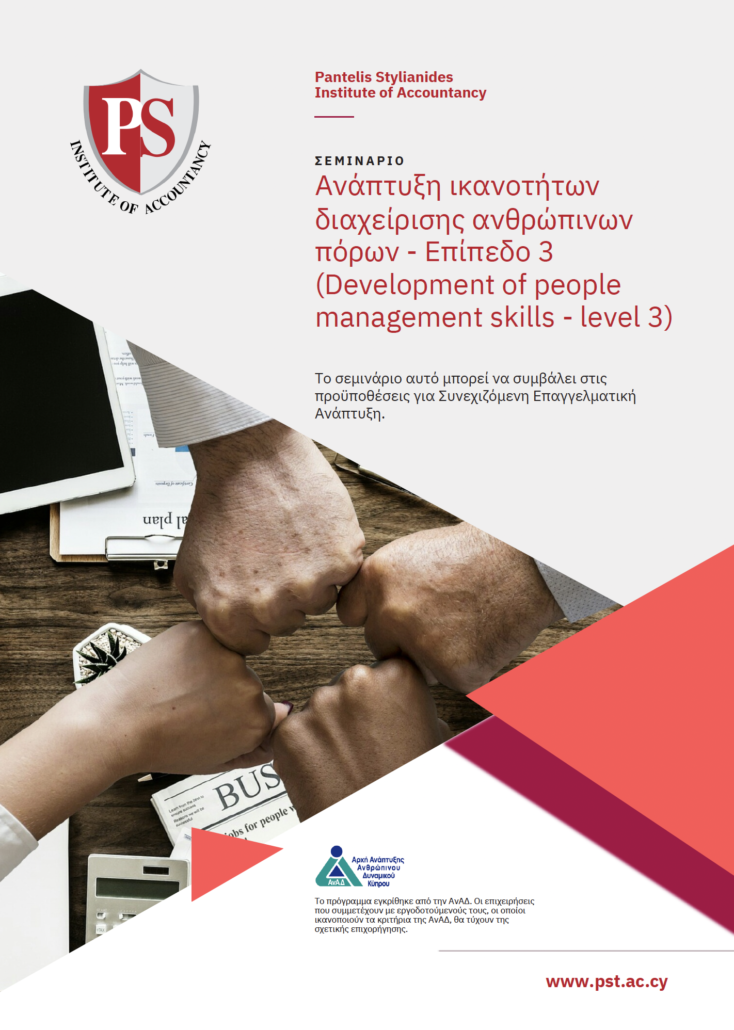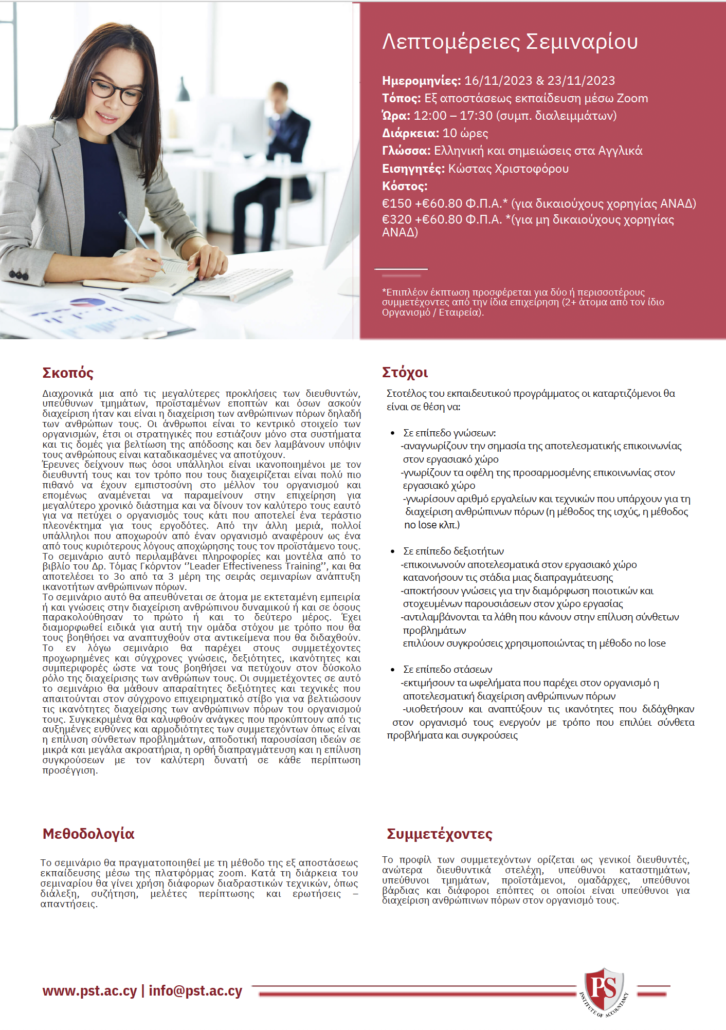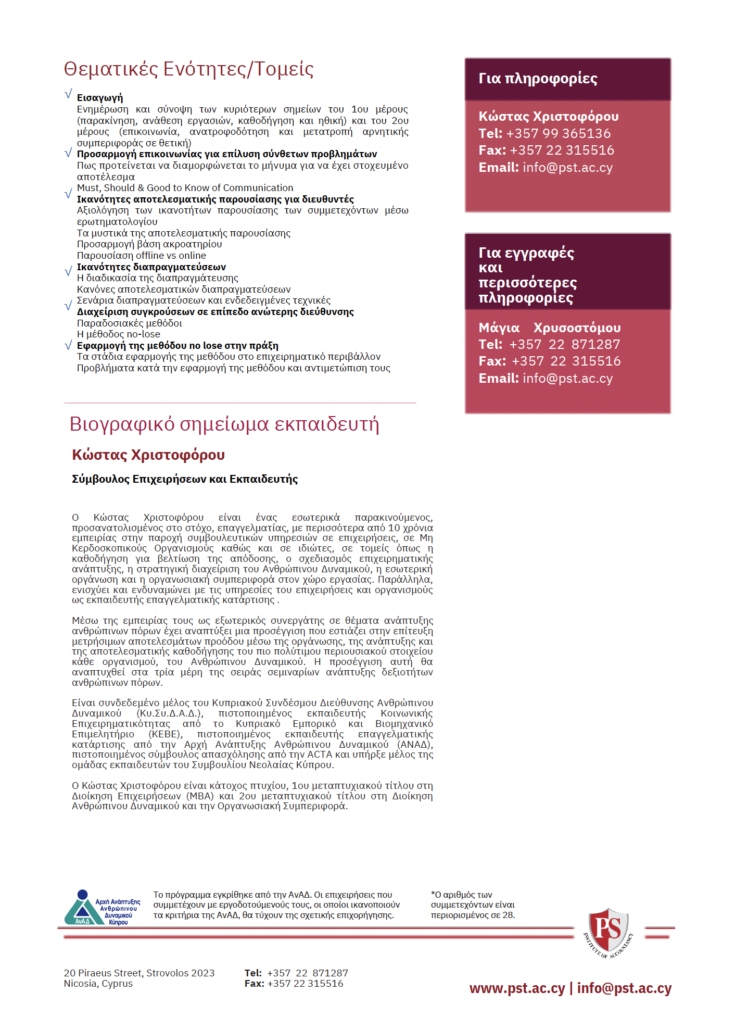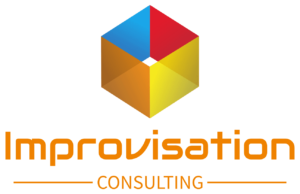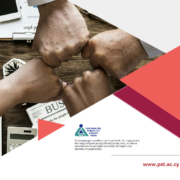Development of people management skills – level 3
Purpose
Historically, one of the greatest challenges for managers, department heads, supervisors, and those in management has been the management of human resources, i.e., their people. People are at the heart of organizations; thus, strategies that focus solely on systems and structures for performance improvement without considering the human element are doomed to fail. Studies show that employees who are satisfied with their manager and how they are managed are more likely to trust the future of the organization and therefore are expected to stay with the company for a longer period and give their best for the success of their organization—a massive advantage for employers. On the other hand, many employees who leave an organization cite their supervisor as one of the main reasons for their departure. This seminar includes information and models from Dr. Thomas Gordon’s “Leader Effectiveness Training” book and will be the 3rd of the 3 parts of the human resource skills development seminar series. This seminar is aimed at individuals with extensive experience or knowledge in human resource management or those who attended the first or second part. It has been specifically designed for this target group in a way that will help them grow in the subjects that will be taught. This seminar will provide participants with advanced and modern knowledge, skills, abilities, and behaviors to help them succeed in the challenging role of managing their people. Participants in this seminar will learn essential skills and techniques required in the modern business world to enhance their human resource management capabilities. Specifically, the seminar will address needs arising from the participants’ increased responsibilities, such as solving complex problems, effectively presenting ideas to small and large audiences, proper negotiation, and conflict resolution with the best possible approach in each case.
Sections
Introduction
Update and summary of the main points of Part 1 (motivation, task assignment, guidance, and ethics) and Part 2 (communication, feedback, and turning negative behavior into positive).
Communication Adaptation for Solving Complex Problems
How the message is suggested to be formed in order to have a targeted outcome.
Must, Should & Good to Know of Communication
Effective presentation skills for managers.
Evaluation of participants’ presentation skills through a questionnaire
Secrets of effective presentation.
Adaptation based on the audience
Offline vs online presentation.
Negotiation skills
The negotiation process.
Rules for effective negotiations
Negotiation scenarios and recommended techniques.
Conflict management at senior management level
Traditional methods.
The no-lose method
Application of the no-lose method in practice. Stages of applying the method in the business environment. Problems during the application of the method and how to address them.
